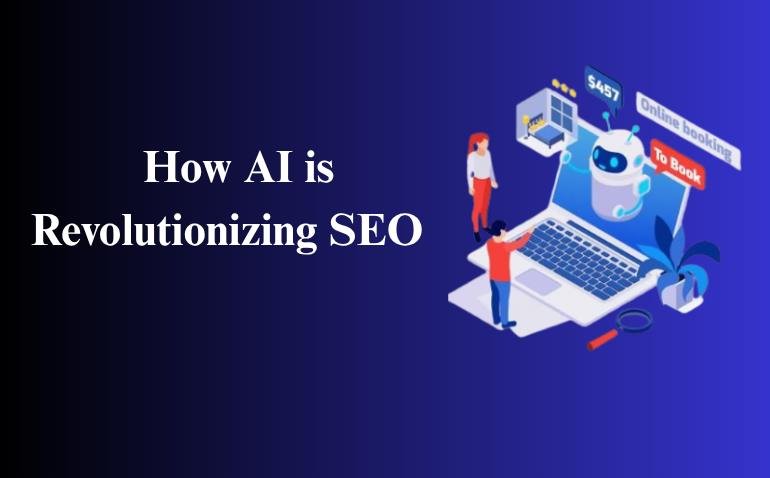Table of Contents
How AI is Revolutionizing SEO: Beyond Traditional Optimization
SEO (Search Engine Optimization) has come a long way from its early days of keyword stuffing and backlink manipulation. Over time, Google’s search algorithms have become increasingly sophisticated, emphasizing the importance of user experience, content relevance, and authority. But now, with the rise of artificial intelligence (AI), the SEO landscape is undergoing another significant transformation. AI is no longer just a buzzword—it’s a core part of modern SEO strategy.
In this post, we’ll explore how AI is revolutionizing SEO practices, moving beyond traditional optimization techniques, and setting the stage for a future where AI-driven decisions will dominate the digital marketing landscape.
Traditional SEO – The Old Guard of Search Engine Optimization
Before diving into AI, it’s important to understand the foundation upon which SEO was built. Traditional SEO revolves around practices like:
1. Keyword Research and Optimization
In the early days of SEO, the primary focus was on finding high-volume keywords and optimizing content around them. This involved keyword density, placing keywords in titles, headings, and meta descriptions, and ensuring that keywords were present in the content in a natural way.
2. Backlink Building
Link-building was (and still is) a crucial part of SEO. The idea was that the more reputable websites linked to your content, the more trustworthy your content appeared to search engines.
3. Content Creation
Content was king, and SEO professionals focused heavily on creating high-quality content that was rich in targeted keywords.
However, traditional SEO has its limitations. For one, it’s manual and time-consuming. You need to constantly tweak content to meet changing search algorithms and update keywords. Furthermore, traditional SEO focuses largely on keywords and backlinks without taking into account user intent, engagement, or the broader context of content.
What is AI, and How is It Changing the SEO Landscape?
Artificial Intelligence (AI) is essentially the simulation of human intelligence in machines designed to think and act like humans. In SEO, AI is helping search engines understand user intent, content context, and even how people interact with digital content.
AI isn’t just about automating tasks; it’s about evolving SEO practices to focus on user-centric strategies, smarter algorithms, and improved content optimization. AI in SEO is powered by technologies like Machine Learning (ML), Natural Language Processing (NLP), and Deep Learning (DL), which allow search engines to analyze billions of web pages and return the most relevant results based on user queries.
AI in SEO Tools
AI is being integrated into various SEO tools, making them smarter and more efficient. Here’s how:
Keyword Research with AI: Traditional keyword research involved manually identifying keywords with high search volume and competition. Today, AI-powered tools like Ahrefs and SEMrush analyze vast amounts of search data to predict keyword trends and identify emerging topics, long-tail keywords, and semantic search queries.
Content Optimization: AI tools such as MarketMuse, SurferSEO, and Frase.io analyze the top-ranking pages for a specific keyword and suggest content improvements. These tools don’t just look at keywords; they evaluate content structure, readability, user intent, and even provide suggestions for adding related topics to enhance topical authority.
Backlink Analysis: AI tools like Moz and Majestic use machine learning algorithms to identify high-quality backlinks and analyze link-building opportunities more efficiently than manual processes. AI can detect unnatural link-building patterns and predict the potential SEO value of specific backlinks.
Predictive SEO Analytics: Predictive AI tools forecast traffic trends and potential ranking improvements based on historical data, allowing marketers to optimize content and strategy proactively, rather than reactively.
AI and Search Engine Algorithms – A Smarter Way to Rank
One of the most significant impacts AI has had on SEO is in how search engines process and rank content. Traditionally, search engines relied heavily on keyword matching, backlinks, and other signals. But now, AI-driven algorithms consider factors like user intent, content context, and even the quality of the user experience.
1. RankBrain – Google’s AI-Powered Algorithm
Google introduced RankBrain in 2015 as part of its search algorithm. RankBrain uses machine learning to understand search queries more accurately, especially those that are ambiguous or unfamiliar. Rather than relying solely on specific keywords, RankBrain looks at the context of a query and tries to deliver the most relevant results based on the user’s search intent.
2. BERT – Understanding Natural Language
In 2019, Google introduced BERT (Bidirectional Encoder Representations from Transformers) to better understand natural language. BERT enables Google to comprehend the full context of a search query—especially when words have multiple meanings or are used in complex phrases. This update has made long-tail, conversational queries much more important in SEO, making it essential to optimize content for user intent rather than simple keyword matching.
3. MUM – The Next Evolution in Search
In 2021, Google launched MUM (Multitask Unified Model), a more advanced AI that not only understands text but can also process images, video, and audio to interpret user queries more comprehensively. MUM is capable of understanding complex, multi-step queries and delivering answers that incorporate diverse sources of information, across multiple languages and formats. This marks a shift towards more semantic and context-driven search results.
AI and Content Creation – The Future of Writing
While AI may not be fully replacing human content creators just yet, it’s certainly enhancing the content creation process. Here’s how AI is influencing content generation in SEO:
1. AI-Generated Content:
AI tools like Jasper and Writesonic can create content from scratch, providing SEO-optimized blog posts, product descriptions, and more. These tools analyze top-ranking content and generate articles that meet SEO guidelines for keywords, readability, and structure.
However, AI-generated content still has limitations. While it can write at scale, it often lacks the human touch—creativity, empathy, and deep insights—that make content truly valuable to readers. That said, AI content creation tools are highly useful for automating mundane tasks or generating initial drafts that can be refined by human writers.
2. Content Optimization:
Tools like Grammarly and Hemingway Editor use AI to help optimize content for readability and grammar. Additionally, AI tools like SurferSEO can analyze the entire content landscape and suggest improvements for keyword placement, content structure, and interlinking strategies
3. Content Personalization:
AI is also helping create personalized content experiences. Websites can use AI to dynamically adjust content based on user behavior, location, and preferences. This level of personalization enhances user engagement and satisfaction—important ranking factors for search engines.
AI and Technical SEO – Streamlining the Process
AI is transforming the technical side of SEO as well. Traditionally, tasks like site audits, keyword research, and content analysis took up significant time and effort. With AI, SEO professionals can automate many of these tasks, allowing them to focus on strategy.
1. Automated Site Audits
AI-powered tools like Screaming Frog and DeepCrawl can scan websites and identify technical issues that may impact SEO performance. These tools can automatically check for things like broken links, duplicate content, and missing meta tags, saving hours of manual work.
2. Voice Search Optimization
Voice search is growing rapidly, with devices like Amazon’s Alexa and Google Assistant becoming household staples. AI helps optimize websites for voice search by focusing on natural, conversational language. Content that is structured to answer direct questions, such as in featured snippets, is more likely to perform well in voice search results.
3. AI and Site Speed Optimization
Page speed is a critical ranking factor, and AI tools can now help optimize site performance. Tools like Google PageSpeed Insights use AI to identify issues like slow-loading images, scripts, and other factors that affect user experience.
4. AI and Mobile Optimization
With mobile-first indexing now a reality, AI-driven tools help optimize websites for mobile users. These tools automatically test mobile responsiveness and recommend design adjustments to ensure that mobile visitors have the best possible experience.
The Future of AI in SEO – What’s Next?
As AI continues to evolve, its role in SEO will only expand. Here are a few trends to keep an eye on:
1. Increasing Automation:
SEO tasks such as content creation, keyword research, and backlink analysis will become more automated, freeing up SEO professionals to focus on strategy and creativity.
2. AI-Powered Personalization
AI will continue to enhance personalization in search results. As search engines get better at understanding individual preferences, SEO strategies will need to focus even more on delivering tailored content experiences.
3. Ethical Considerations
As AI becomes more integral to SEO, ethical concerns will arise. For example, AI-generated content may raise questions about originality, plagiarism, and authenticity. Marketers must find a balance between leveraging AI’s power and maintaining ethical practices.
Conclusion
AI is transforming SEO in ways that were once unimaginable. From smarter algorithms to more efficient content creation, AI is helping businesses optimize their websites in ways that are faster, more accurate, and more effective than traditional methods. As search engines evolve, those who adapt to AI-driven SEO strategies will have a distinct advantage in the competitive digital landscape.


